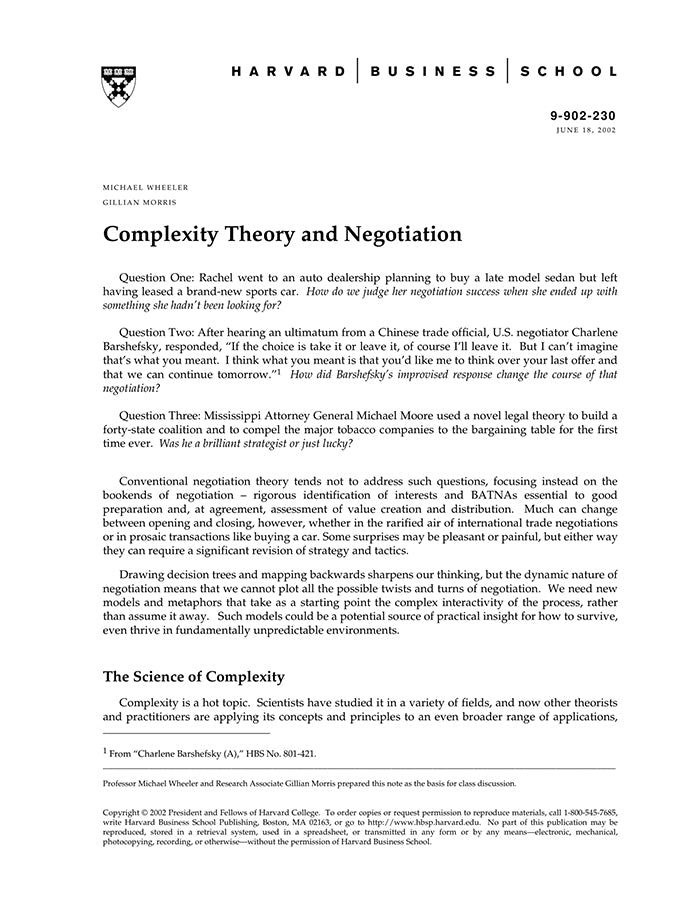Complexity Theory and Negotiation
受取状況を読み込めませんでした
This case highlights an application of current thoughts in complexity science to negotiation theory. It emphasizes a provocative approach that questions much of traditional negotiation research thus far. The case explains the roots of complexity science and some broad ideas and definitions, such as linearity versus nonlinearity, feedback loops, and chaos. It turns to a subset of complexity science--the study of complex adaptive systems. These systems have interactive feedback loops and critical junctures that affect the future course of the system. Also, they are highly adaptive and creative. Negotiations are complex, adaptive systems and should be studied at the micro, interactional scale. Five key lessons are drawn: 1) seemingly simple negotiations can take surprisingly different paths; 2) situations that appear complex may be driven by only a few key factors; 3) large patterns are often reflected in small ones; 4) complex adaptive systems, like negotiation, are not utterly random, yet neither do they have a fixed equilibrium; and 5) creativity is spawned at the chaotic edge.
【書誌情報】
ページ数:15ページ
サイズ:A4
商品番号:HBSP-902230
発行日:2002/6/18
登録日:2012/2/9


